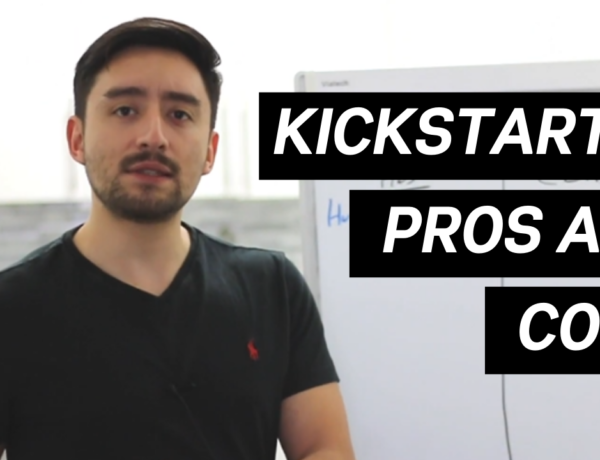Do you want to see if Fundrise is right for you?
I’ve put together a complete review of Fundrise in 2019 that goes through the pros and cons of real estate crowdfunding.
We’ll get into the nitty gritty of this website, who it’s for, how you can use it, and whether or not it’s a good fit for you.
By the end of this video, you’ll have a crystal clear idea of how the website works, who it’s for, and how it can help you reach your investing goals.
Did you find the video to be helpful?
Did you learn something new about Fundrise?
I’ve been working hard to get together some great new videos and will be releasing them on my YouTube channel. If you want to be notified, just subscribe and turn on notifications.
Real estate crowdfunding is a new concept for a lot of investors out there. Fundrise is one of the top websites in this space. Let’s get into whether or not they are right for you…
1. eREITS are private REITs…
I get into eREITS and some of the other websites out there offering private REITs in my book, Real Estate Crowdfunding Explained. Let’s talk a bit about private REITs.
Basically, a private REIT has many of the same properties as a traditional REIT, but with one big exception. It’s not publicly traded. There isn’t really a marketplace for private REITs.
This means that you’re going to have less liquidity with a private REIT than you would with a traditional REIT. You can’t as easily redeem your investment for dollars. You gotta wait for an opportunity to cash out, or just receive dividends.
Depending on your investing goals, this could be a pro or a con. You can learn more about the differences here.
2. Investor categories and risk
You gotta know your goals as an investor. Some investors want security of capital. Others have a bigger appetite for risk and want larger returns.
Depending on your appetite for risk, you might be investing in a growth fund or a supplemental income plan. This will change up the mix of debt and equity in the portfolio.
On Fundrise, you can choose between these different funds, along with the geographic location where you want to invest in real estate. The website caters to many different types of investors.
One of the other big distinguishers between investors is how long they want to hold their investment before they cash out. I’m referring to liquidity. You’re more likely to achieve your investment goals when you’re crystal clear about what you want for your portfolio.
3. Real estate crowdfunding…
There are a few different real estate crowdfunding websites out there with various pros and cons. One of the hallmarks of Fundrise is that anyone can invest on the website.
I’m referring to both accredited and non-accredited investors. They can both invest on Fundrise. There are no income or net worth requirements to access the investments.
This is different from other sites, like CrowdStreet or RealtyShares. Real estate crowdfunding is an industry all in of itself. There are requirements that vary from platform to platform. Some sites are better for your investing goals than others.
In my book, Real Estate Crowdfunding Explained, you can learn about more of the websites in the industry.
4. Alternative investments
I would lump Fundrise into the class of alternative investments that should be a part of your portfolio. It helps to diversify your holdings.
Including real estate as a part of your portfolio is a good hedge against inflation and attacks the problem from an appreciation and cash flow standpoint.
The only big downside that I see to Fundrise is the lack of liquidity that comes with a private REIT. As a trade-off, you also get access to private investments that aren’t available anywhere else.
At the same time, I wouldn’t limit yourself to one platform. You can invest in real estate on multiple crowdfunding websites and further diversify your portfolio that way. Fundrise is only one of the sites out there.
For more information, take a look at the comprehensive review that I posted on YouTube. I hope you enjoyed this video and that you take away some knew knowledge about Fundrise.




